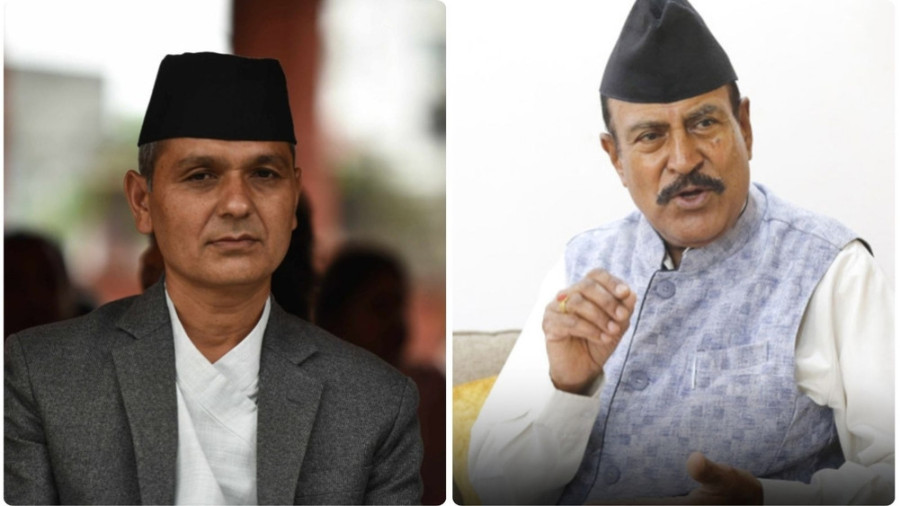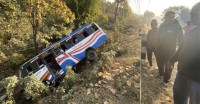National
Home ministry and Karki commission split over criminal action in Gen Z crackdown
The home ministry insists on waiting for the judicial commission’s report before initiating action, while the Karki-led inquiry panel says criminal investigations need not be delayed.
Post Report
A disagreement has emerged between the home ministry and the judicial inquiry commission led by former judge Gauri Bahadur Karki over whether to immediately initiate criminal proceedings against those accused of human and physical damages caused during the Gen Z protests on September 8-9.
The dispute centres on whether the government’s regular mechanisms should immediately begin investigating individuals allegedly involved in looting, arson, and violence, or wait until the Karki commission submits its report.
The Karki-led commission, which was formed in the third week of September with a mandate to probe into the excessive use of force by security agencies during the Gen Z protests, is given three months to study and submit its report to the government.
In a statement issued on Tuesday, commission member Bigyan Raj Sharma said that the relevant authorities “need not wait for the commission’s report” before investigating criminal cases through regular state mechanisms. This contradicted the home ministry’s circular of September 25, which instructed that “no immediate criminal action be taken in matters under the commission’s jurisdiction.”
Home Minister Om Prakash Aryal had earlier directed chief district officers in all 77 districts not to detain Gen Z demonstrators, citing the ongoing inquiry. Following this directive, several detainees were released, including some accused of arson and looting.
“A number of suspects had to be freed after the ministry’s order, but now the commission says there is no bar to action—so we’re caught in confusion,” said a police officer based in Kathmandu Valley.
The home ministry maintains that the commission was established to examine incidents beyond regular administrative reach, not to interfere with criminal investigations. “The ministry’s statement was misinterpreted,” said a senior home ministry official. “We only meant that rash actions based solely on protest footage should be avoided, not that law enforcement should halt investigations altogether.”
Former additional inspector general of police Rajendra Singh Bhandari also commented that the commission’s role is to analyse facts and advise the state, not to substitute criminal justice procedures. “Judicial inquiries and criminal investigations are entirely separate processes,” he said. “Serious offences must still be investigated under the established criminal justice framework.”
The Karki commission was formed by the Sushila Karki-led civilian government after the September 8–9 protests that left at least 75 people dead and caused widespread destruction across the country. It has been tasked with investigating the state’s excessive use of force during the Gen Z movement.
On September 28, the commission wrote to the home and foreign ministries requesting a travel ban on former prime minister KP Sharma Oli, former home minister Ramesh Lekhak, home secretary Gokarna Mani Duwadi, national investigation department chief Hutaraj Thapa, and former Kathmandu chief district officer Chhabilal Rijal. The commission has also instructed that these officials not leave the Kathmandu valley without its approval.
With conflicting directives from the home ministry and the Karki commission, police officers say they are struggling to interpret which authority to follow, as the debate underscores the growing tension between political restraint and judicial accountability in post-crackdown Nepal.




 22.11°C Kathmandu
22.11°C Kathmandu













